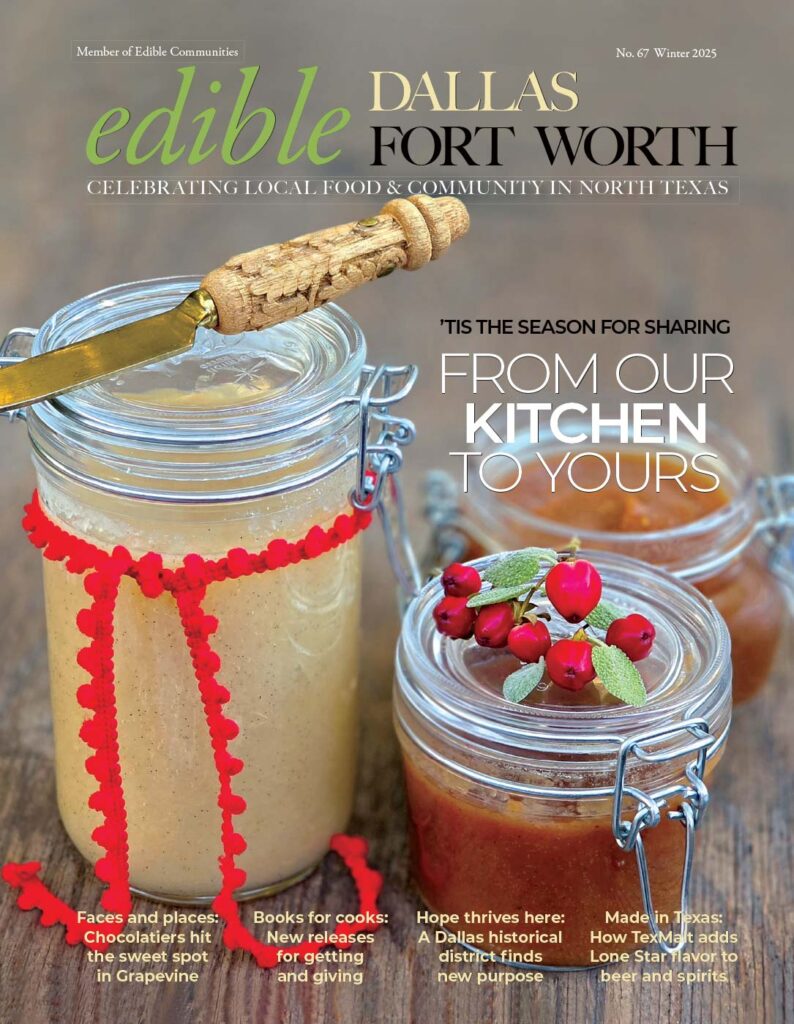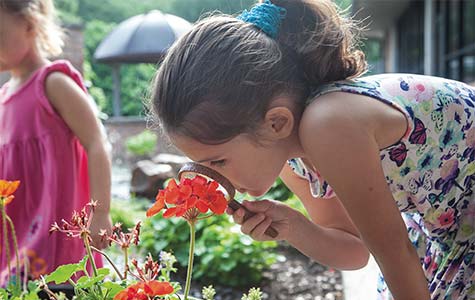
Photography by Kelly Yandell
“You can’t change the world if you do not have a relationship with the world, and so we are building that relationship from the very beginning.”
Heidi Kutchin’s eyes twinkle when she talks about the Gan Shalom (Garden of Peace), a program she has headed since 2006 at Temple Emanu-El, a Reform Jewish community located in North Dallas. She speaks in sweeping terms that could make one think she was instructing high school or college students. In fact, she is talking about a very special program for children, ages two to five.
While school gardens have proliferated in the country, most have been focused on elementary students. At Temple Emanu-El, the belief is that if you teach children to be caregivers in a small setting from an early age, they will grow into caregivers of the community in a larger sense. “We are very committed,” says Kutchin, “to help form them into adults who are the caregivers of the world.”
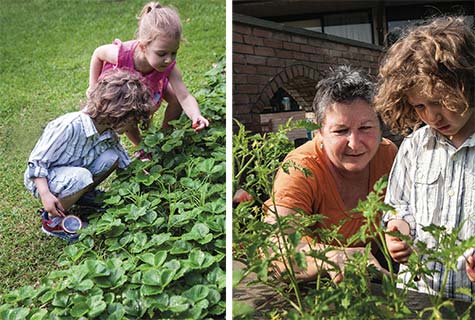
“We are very committed,” says Kutchin,
“to help form them into adults
who are the caregivers of the world.”
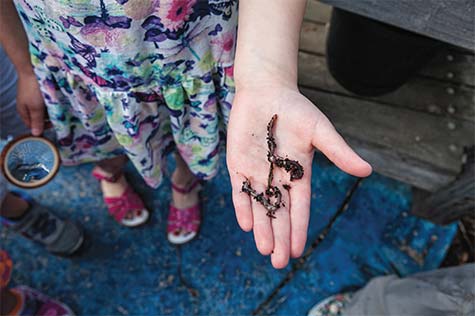
At the Early Childhood Education Center (ECEC), each class visits the Garden & Living Science Program on a weekly or bi-weekly basis. The program provides opportunities for the children to establish a relationship with nature, to understand their place in the world and learn how they are a part of a greater system. They care for the animals, plant and harvest vegetables and herbs, and learn about composting. Each of the program’s lessons is woven into the curriculum of their other classes.
Kutchin, with the assistance of Liz Gerber and Kim Pariza, shows the children the cyclical nature of the world and how animals, plants and humans all depend on one another. The program primarily consists of three areas of inquiry: production beds, a composting program and a Living Science Room.
The production beds are in an outdoor garden area, which are planted with herbs to touch and smell, flowers to observe, and vegetables to grow and harvest. Not only do they address ideas such as healthy foods and bodies, they use the food they’ve grown in the culinary arts program, teaching students how to prepare nutritious snacks. “Children are more inclined to try something if they grew it,” says Kutchin.
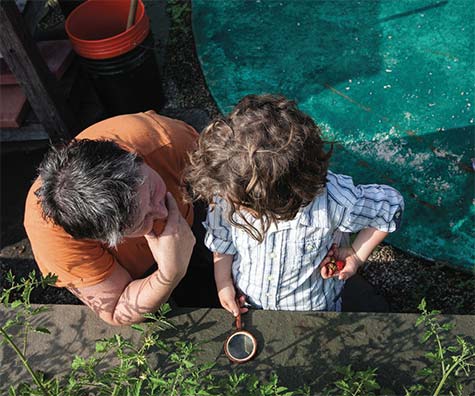
Besides establishing basic inquiry skills,
the children are learning to care
for small creatures as they place the
needs of others ahead of their own.
The compost bin, says Kutchin, is a metaphor for so much that the children can learn. “The composting links the inside to the outside. They are collecting organic waste during the regular course of the day and bringing it outside.” The children turn it, aerate it and layer it, and several times a year they screen it and keep what is ready, the humus. The worms in the compost are the “attractors.” The worms cause the children to be interested in what is going on in the bin. “The great thing about composting is that it places a value on things most people consider trash,” says Kutchin.
In the garden, the children are also given a new way to view bees, worms and other garden creatures. Rather than being frightened by a bee or find a worm repellant, they get excited. “They build a relationship with the worms,” says Kutchin. “They are all working together. By observing, the children learn the importance of helping those bees and worms thrive.”
The rabbits, ferrets, lizards, turtles and fish in the Living Science Room are an inquiring child’s dream. The children care for and learn to interact with the animals. Besides establishing basic inquiry skills, the children are learning to care for small creatures as they place the needs of others ahead of their own. “These are humanist values,” says Kutchin. “A huge part of our population are non-Jews. These are universal values . . . or should be.”
Several holidays in the Jewish tradition are harvest celebrations. Kutchin noted that there is a concept of the seven species of Israel, which refers to seven dominant agricultural products prevalent in ancient Israel and specifically noted in the Torah. “Figs, pomegranates, grapes,” says Kutchin, “are foods that they hear about from the stories in the Torah. They know what they are because they have them growing in their garden.”
Kutchin also organizes a shuk at least once per year, which essentially looks like a miniature farmers market. Several local purveyors, such as Brandon and Susan Pollard of the Texas Honeybee Guild, and Meaders Ozarow of Empire Baking bring honey and bread for the children to purchase. Likewise, the children create craft s and other items to be sold at the market, as well. The tiny customers wander about with small bags of change and purchase items to take home to their families. It is a cultural connection to Israel.
Kutchin’s fortunate students are being raised with an ethos of taking care of the world around them, which is a benefit to us all. She repeats the refrain: “You have to love it to want to save it. To love it you have to have a relationship with it.”
KELLY YANDELL is a writer and photographer based in Dallas. She has contributed to Edible Dallas & Fort Worth since 2011. Her website (themeaningofpie.com) celebrates practical dishes and comfort foods, while her photography portfolio can be found at kellyyandell.com. Kelly is an attorney and is the vice president of the Advisory Board of Foodways Texas, an organization founded by scholars, chefs, journalists, restaurateurs, farmers, ranchers, and other citizens of the state of Texas who have made it their mission to preserve, promote and celebrate the diverse food cultures of Texas.
- Kelly Yandell
- Kelly Yandell
- Kelly Yandell
- Kelly Yandell
- Kelly Yandell
- Kelly Yandell
- Kelly Yandell
- Kelly Yandell
- Kelly Yandell
- Kelly Yandell


